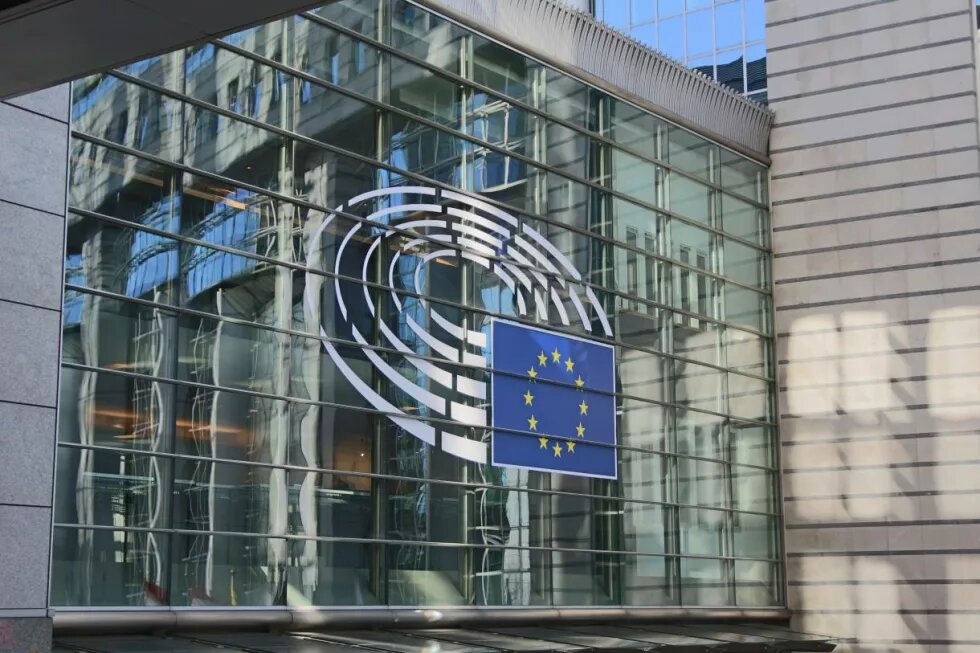The European Parliament has provided fresh impetus for a European Association Statute, yet this is by no means new. Looking back over the various initiatives of the last 35 years to create a European legal form for associations reveals the challenges the new initiative must face.

With its "Report on a statutory European cross-border associations and non-profit organisations" adopted in February 2022, the European Parliament has provided fresh impetus to create a European Association Statute. This venture, initiated by MEP Sergey Lagodinsky, picks up on the long-held concerns of European civil society and the need for a standard regulation to make cross-border civility engagement easier and provide for its legal protection in the EU.
The fact that European associations still have no common status in the EU treaties and are therefore neither legally governed nor protected is astonishing, particularly considering that there is already an array of European legal forms, such as the European Economic Interest Grouping (EEIG) for lobby associations, the European Public Limited Liability Company (SE) for profit-making joint-stock companies or the European Cooperative Society (SCE). Given the comprehensive range of cross-border societal activities and the ambition expressly set out in Article 11 of the Treaty on European Union (TEU) for the close involvement of citizens in the political decision-making process of the EU, this is a legal gap for non-profit associations that has so far been impossible to close, despite many efforts. Why this is the case becomes apparent by looking back at these attempts and identifying the reasons they have so far always failed.
The initiative of the European Parliament in 1987
The European Parliament first discussed the issue of the “European Association Statute” on 12 March 1987 and adopted the report by Nicole Fontaine, entitled “Resolution on non-profit-making associations in the European Communities”, the following day. This report emphasises the need for a community-wide association statute, asserting that the European Public Interest Grouping (EEIG) is inadequate for this purpose. The report also highlights the aim of tax relief for non-profit associations and recommends a harmonisation of the relevant tax rules. This was the first attempt of the European Parliament to create a European Association Statute of a consultative nature.
The proposal of the European Commission in 1993
The European Commission picked up on the EP’s initiative and, some years later, submitted a legislative proposal based upon it, namely the “Proposal for a Council Regulation (EEC) on the statute for a European Association”. This was the subject of political debate for several years and faced two major points of criticism. Firstly, the competence of the EU in the matter was called into question and European legislation in the non-profit (i.e. non-economic) field was generally rejected. The critics included the governments of Denmark, the United Kingdom and, up until 1998, Germany.[1] Secondly, the European Commission’s specific approach of basing all forms of citizens’ association on economic activity came under fire. Germany in particular made the point that this ran counter to the German understanding of associations and the for public benefit sector as well as the concept of the “ideal association”, which should be considered in its own legal form. Reference was also made to the very many bureaucratic and administrative hurdles to associations that had been transferred into the proposal out of the corporate statute. The initiative therefore failed.
After the European Public Limited Liability Company status (SCE) and the European Cooperative Society (ECS) were approved by the three EU institutions separately from the association, discussions on the European Association Statute re-emerged in 2003 when it was included in the European Commission’s action plan “Modernising Company Law and Enhancing Corporate Governance in the European Union – a Plan to Move Forward”. When the European Commission subsequently presented its initiative in the framework of the “Better Regulation” drive to reduce bureaucracy and overregulation, the proposal for a European Association Statute was nowhere to be seen. The European Commission officially abandoned its initiative due to the unlikelihood of success.
The initiative of the European Alliance for the Statute of the European Association in 2011
The European Commission’s rejection of an association statute was the cause of great disappointment among European civil society networks. Led by the European Civic Forum, a coalition of civil society networks and European associations was created in Brussels, known as the EASEA - European Alliance for the Statute of the European Association. In 2011, 39 European NGOs under the banner of the alliance signed a ‘Manifesto for a European Statute of the European Association’.
The aim of these civil society lobby efforts was to get the European Association Statute back on the agenda by no later than the “European Year of Citizens” in 2013. Working with representatives of civil society in the European Economic and Social Committee[2], they succeeded in getting the European Parliament back on board to work towards the Association Statute. By initiative of MEPs Regina Bastos (EPP), Marc Tarabella (S&D), Pascal Canfin (Greens/EFA), Marie-Christine Vergiat (GUE/NGL) and Renate Weber (ALDE), the “Declaration of the European Parliament on establishing European statutes for mutual societies, associations and foundations” was adopted in March 2011. In it, the European Parliament called upon the European Commission to “take the necessary steps to introduce proposals for European statutes for associations, mutual societies and foundations”.[3] This request included a feasibility study and impact assessment for civil society organisations.
However, the European Commission decided to start by creating the European Foundation Status. A more recent initiative for a European Association Statute – or "giving further consideration to (…) the need for a possible European statute for (…) non-profit-making associations”, as the EU Commission put it in its communication “Social Business Initiative” of 25 October 2011 – would have to wait until the proposed European Foundation status had been safely adopted. The European Commission had already published a feasibility study in 2009 that declared the European Foundation Status a high priority and predicted, amongst other things, an annual cost-savings potential of around 100 million euros a year in the foundation sector. Following a public consultation in 2009 and further declarations, the European Commission’s Proposal for a Council Regulation on the Statute for a European Foundation (FE) was published on 8 February 2012. Despite massive support from the foundation sector, no agreement was reached in EU Council due in particular, but not only, to problems expressed by German foundations with the tabled draft. After years of negotiations, the European Commission withdrew its proposal in March 2015.
Whether or not the success of the European Foundation Status would have catalysed efforts for the European Association Statute remains a matter of conjecture, but its failure seems to have side-lined the European Association for a long time. Since then, the European Commission’s standpoint, as expressed in an answer to a parliamentary question in December 2015 as follows, has been that “the endorsement of such an initiative by the EU Council which, similarly to all other regulations in the social economic area, can be achieved only by unanimity, seems, at present, unlikely”.
This makes the European Commission’s proposal of 1993 the only legislative proposal ever drafted. It served as the basis of the debate for more than 20 years until the European Commission officially shelved the plans in 2015. To understand why all initiatives for a European Association Statute have so far failed, it is necessary to look at the main points of contention in the discussion. It should also be taken into account that since the first initiative in 1985, the competencies and legal bases of the European Union have been extended considerably, particularly with the Treaties of Amsterdam and Lisbon, thereby opening up new options.
One particular issue was the matter of competency. In other words whether, and on what basis, the European institutions are generally responsible and entitled to legislate. The first draft of the European Association Statute was based, amongst other things, on Article 100a of the European Economic Community (EEC) Treaty, the harmonisation of legal regulations in the EU Single Market, and concerned the economic activities of an association; this is correct in that many associations provide non-profit services (that would otherwise be available either not at all or on a commercial basis) and act as employers and market participants. However, economic activity is not the central purpose of civil society activity, quite the opposite. In its proposal, the European Commission worked on the assumption that European associations are generally economic actors (even if there is no profit motive). This attracted strong resistance from the stakeholders. Treating European associations as nothing more than market participants would provide for many controversial requirements, such as a board of directors made up of three people (assuming no right of associations to establish their own statutes) as well as accounting and publishing obligations. This legal form is too complicated for a basic format for non-profit associations for charitable purposes, which is ultimately why it was rejected. Any new initiative should therefore not be based predominantly on Article 100a TEU (now Article 114 TEU) and treat associations as market participants, particularly as the Lisbon Treaty provides other alternatives, for instance in Article 11 TEU.
There was yet more controversy concerning the matter of non-profit status and the related understanding of privileged tax treatment for civil society corporations. This concept is missing from European law. The nation states must align their non-profit laws on EU competition law and the rules on prohibited state aid. In the past, this has led to disagreement, as it puts non-profit organisations on a more advantageous footing than their private competitors, and informed the discussion on a European corporate form for civil society. The lack of a common understanding of non-profit status is another reason consensus between EU Member States was not possible and the European Commission’s initiative for a European Association Statute did not succeed. When there are 27 enormously different national traditions and legislations, that is unquestionably a lot to get round, but comparative studies of the non-profit legal regulations have shown that the structural abilities are considerable and that “practically every problem of non-profit law has a counterpart in the other legal orders”[4], so that the outlines of non-profit status defined at European level are already there.
The "Report on a statute for European cross-border associations and non-profit organisations” adopted by the European Parliament in February 2022 offers the opportunity to rethink the two issues that have previously led to controversies and, ultimately, scuppered all previous initiatives. The European Commission is now called upon to draft a new legislative proposal for a European Association Statute. It has announced that it will submit a legal bill to this effect in the coming months. It remains to be seen how the legal basis in the treaties and the definition of non-profit status will be revisited.
Finally, it is worth considering whether the political framework should be reassessed in 2022. In view of the multiple crises that Europe has to deal with, the importance of European civil society action, which is under considerable pressure in many places, is more important for the cohesion of the EU than ever. This must finally be given due account.
[1] Following a change of government, the newly elected red-green German federal government supported the European Commission's initiative.
[2] See the report "Towards a Statute of the European Association" of the public hearing of the European Economic and Social Committee (EESC) of 28 April 2011.
[3] OJ 2012/C 199 E/24
[4] Walz, von Auer, von Hippel (2007) Spenden- und Gemeinnützigkeitsrecht in Europa: 123


